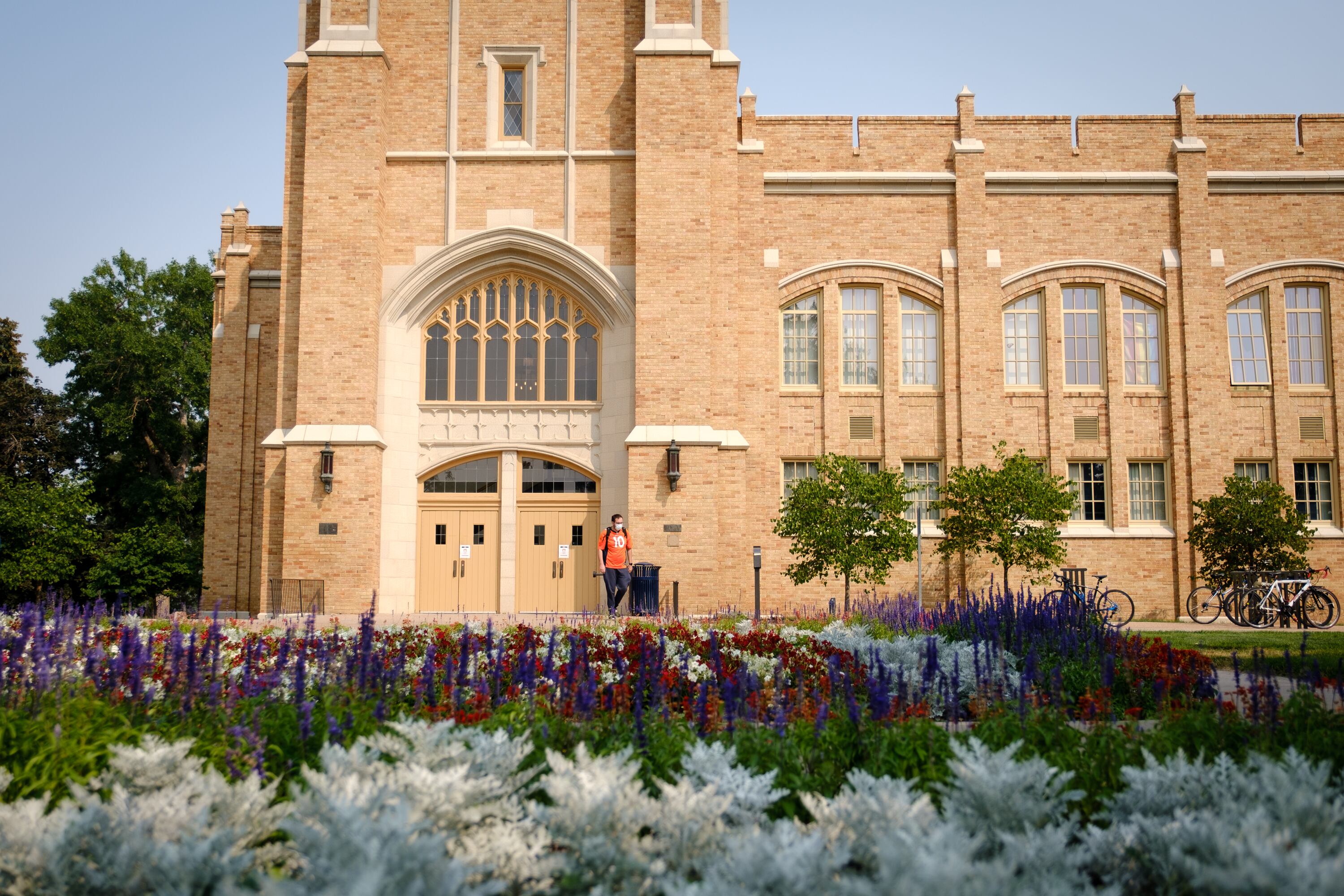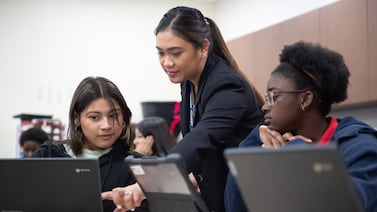Sign up for our free monthly newsletter Beyond High School to get the latest news about higher education in Colorado.
Colorado public university leaders say they’re better prepared now to support the immigrant students on their campuses than they were during President-elect Donald Trump’s first term.
College administrators said many will follow a similar blueprint to the one they created in 2016 and have sustained since that time. But Trump’s upcoming second turn in office – and his calls for mass deportations – bring a renewed need from Colorado universities and colleges to remind undocumented immigrant students that they’re not only welcome on campus, but they will support them to help them realize their dreams, they said.
College administrators said that’s especially true as they hear more undocumented students are feeling worn out by the constant threat of deportations.
“Despite the fact that we do have a lot of support for this population, I feel like we definitely, definitely need to do more,” said Rodolfo Vargas, University of Northern Colorado César Chávez Cultural Center director. “And that’s what we’re working on right now.”
Colorado’s public colleges and universities annually educate a diverse group of students that includes international and migrant students. Immigrant students might have legal protection to stay in the country, no documentation at all, or might be here legally but worry about undocumented family members. About 156,000 undocumented immigrants live in the state.
Over the last four years, an average of 2,300 undocumented students a year have applied for the Colorado Application for State Financial Aid. The application, like the Free Application for Federal Student Aid, is meant to help undocumented students qualify for money to pay for college and realize their dreams. Students can also qualify for in-state tuition through the Colorado ASSET program.
And Colorado restricts most forms of cooperation with federal immigration authorities when it comes to deportations, although a lot can depend on which county or cities residents live in.
Vargas said students are also constantly fearful laws might change, such as whether the federal government will end the Deferred Action for Childhood Arrivals program. In Colorado, about 12,000 individuals have DACA, or protections for immigrants who were brought to the states as young children and live in the United States without proper documentation.
Trump’s priorities are very similar to 2016, when his calls for deportations prompted Metropolitan State University of Denver officials to boost resources for undocumented students, said Gregor Mieder, MSU Denver immigrant services director.
In 2016, MSU Denver officials held seminars with immigration lawyers so students could understand what the Trump administration would mean for them, brought in support staff to navigate certain legal forms and DACA, and even brought in community organizations to help.
“It mobilized community support that was really supportive and wonderful to see,” Mieder said. “I would say that also informs a little bit how we’re thinking now about the next administration.”
Universities and college leaders said laws around deportations are a matter of federal policy.
But they’re dedicated to making students feel welcome like at MSU Denver and Northern Colorado.
A University of Colorado Boulder spokeswoman in a statement said international and noncitizen students and scholars enrich the campus and community, and the school’s leaders will continue to support their employment and enrollment, regardless of who’s in office.
“Undocumented students belong at CU Boulder and their success is a priority,” the statement says.
The school will continue to provide resources such as the University of Colorado Law School’s Immigration Law Clinic, which provides direct services to students, staff, and community members. The school also has an UndocuNetwork — or an online repository of resources — that includes ways to contact faculty and staff from across campus to address undocumented students’ concerns and get connected with support services.
Similarly, Adams State University Executive Equity Office officer Florencio Urias Aranda III said in a statement that the school is committed to providing a safe and welcoming community for students from all walks of life.
“Our commitment and top priority is to help students thrive, and write their great story, by providing support services and adequate resources to all students, especially underserved and underrepresented populations,” he said.
Neither MSU Denver and Northern Colorado saw any appreciable dropoff in the number of undocumented students who enrolled on campus during Trump’s first term, officials said.
However, Vargas said students have a harder time finishing because they might see the need to work to support their families or get exhausted by the constant threat of deportation or changes in laws. Many face constant stress and pressure that would be too much for most, he said.
Yet over and over students push through, especially because Mieder and Vargas said they constantly remind students how powerful education can be for their lives.
Students want to give back to their communities, Mieder said. And an education is one of the things no politician can take away from them, he said.
It’s up to college administrators to make them feel comfortable, and Mieder said the school will continue to find new ways to address issues as they pop up. The students then do the rest through their dedication and resiliency, he said.
“By and large, students here at MSU Denver will push through almost anything, and with so much effort and so much dedication,” Mieder said. “That’s really amazing to see.”
Jason Gonzales is a reporter covering higher education and the Colorado legislature. Chalkbeat Colorado partners with Open Campus on higher education coverage. Contact Jason at jgonzales@chalkbeat.org.






